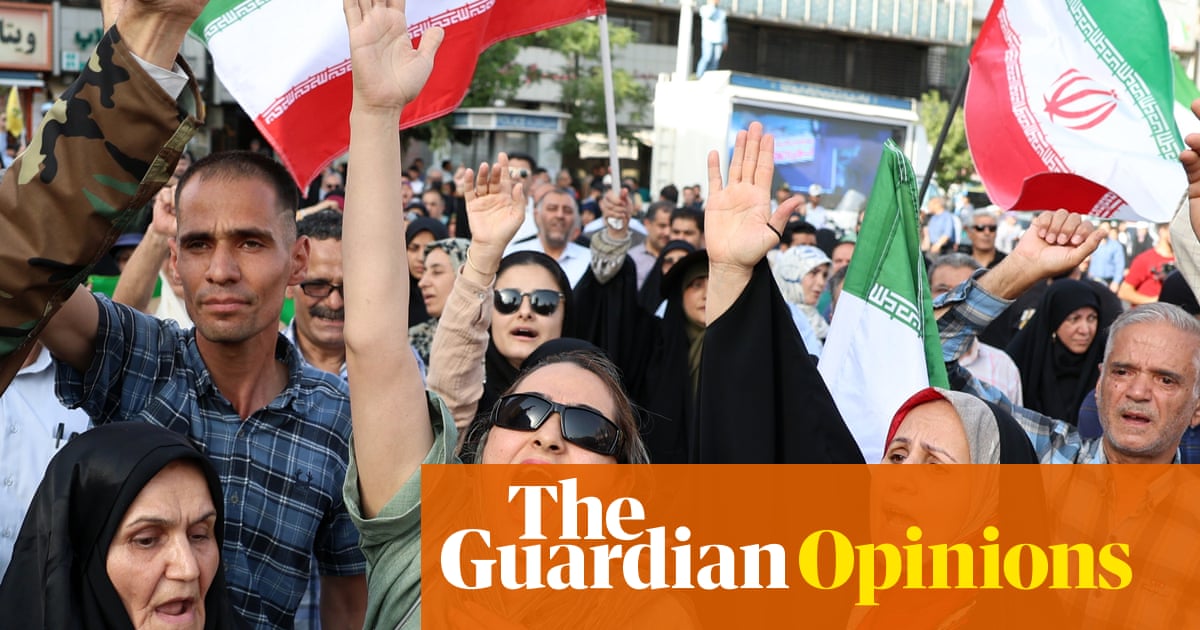Donald Trump was predictably quick to claim victory followingthe illegalUS strike on Iran’s nuclear facilities: “Completely and totally obliterated,” he crowed. Benjamin Netanyahu in Israel and sycophants at home rushed to fawn over his “courageous” and “brilliant” decision. The most senior US military official, Dan Caine, offered amore muted assessment: it was “way too early” to know the full outcome despite severe damage. We cannot yet know whether the blow has ended Iran’s nuclear aspirations – or will spur it to pursue the bomb. It may be weeks or months, too, before Iranian retaliation plays out, with all its potential repercussions.
Two nuclear-armed states have gone to war on the unevidenced claim that a third state is on the verge of acquiring its own nuclear arms. In March, the US director of national intelligence, Tulsi Gabbard, said Iran was not building weapons (though she has now scrambled to align with Mr Trump).Israelis clear that its attacks will continue, and has increasingly talked of regime change. The price is being paid not only by a reviled regime but by the Iranian people.
Senior administration figures insisted that the US is solely focused on the nuclear programme. As a candidate, Mr Trump vowed to “stop the chaos in the Middle East” and “prevent world war three”. Yet the risk of regional conflagration is growing, and now he warns of “either peace or … tragedy for Iran” if it does not end uranium enrichment. Mr Netanyahulured him into this attackand may lead him into more, paying gushing tribute to a history-making president and thanking him on behalf of “the forces of civilisation”. Mr Trump described them as working together “like perhaps no team has ever worked before”.
Iran has been notably cautious since Israel’s attack began. The pillars of its security – its regional networks, missiles and nuclear programme – haveall suffered punishing blows. To do nothing invites further attack; to hit back – particularly by targeting US personnel in the region – courts disaster. Closethe strait of Hormuzand oil prices would soar. But that would hit Iran’s own exports and risk involving Gulf states. Russia and China condemned the US strike but are hardly rushing to offer Tehran assistance.
Israel’s strike – and the US’s – on Iran cannot bejustifiedunder international law’s self-defence doctrine. The UN secretary general, António Guterres, rightly warns of catastrophe in the Middle East, urging diplomacy as the only solution. Yet Mr Trump walked away from the Obama-overseen deal that slowed Iran’s programme, and now has struck Iran when it sought negotiation despite Israel’s attacks. Sir Keir Starmer, too,called for de-escalation and negotiation, though he backed the US strike. The US did not request British assistance – but the fear remains that European powers may be drawn into another criminal and disastrous war in the Middle East.
In rejecting diplomacy and choosing war, not only in breach of international law but at the behest of a country pursuing annihilation in Gaza, the US has delivered a resounding blow to the architecture of global affairs. It has signalled that countries that negotiate (Iran) face stark consequences, which those which rush to own the bomb (North Korea) can avoid. Its embrace of pre-emptive strikes is handy for Vladimir Putin, Xi Jinping and any leader who might want to carry out their own. Even if the immediate crisis in the Middle East can be contained, the cost of this reckless act may not be fully felt or comprehended for decades.
